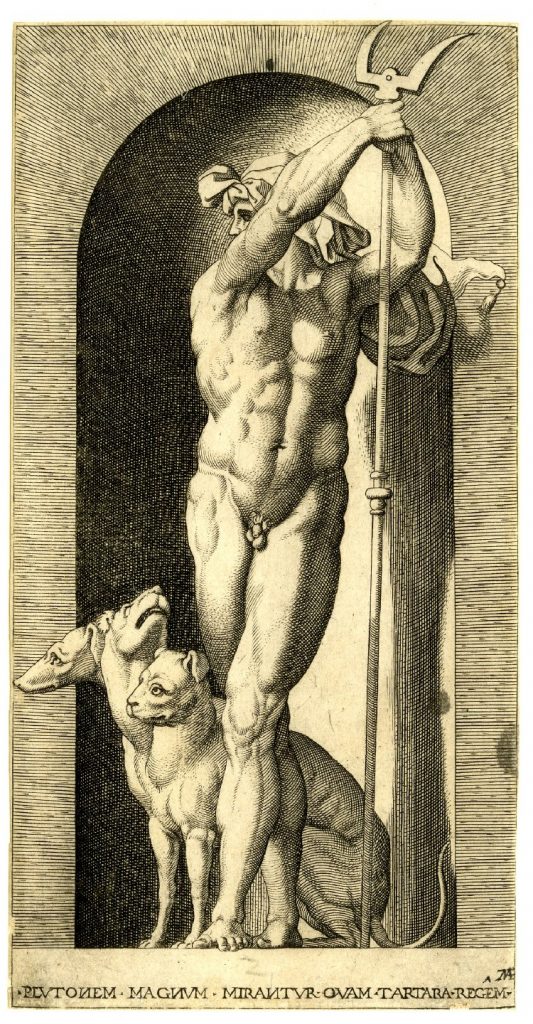More often than not, ancient Greek mythology (religion) served to explain a series of legends. Different from modern religions such as Christianity, Judaism, or Islam, ancient Greek religion was an anthropomorphic polytheism, meaning that ancient Greeks believed in a multitude of individual divine figures that took on human forms and emotions.1 Furthermore, ancient Greek mythology lacked much of the asceticism and mystical enthusiasm that is more commonly seen in modern religions. Most of the highly developed anthropomorphic and comparative rationalism of the ancient Greek religious thought can be accredited to Homer with the aid of his Iliad and Odyssey.2
The people of the ancient Greek civilization were often in a state of weakness under the power of nature; therefore, they relied heavily on the divine individuals of Olympus. Why? They believed that the forces of nature were under the control of their gods. In short, the relationship between humans and divine beings was that of a retribution justice.3 If humans did anything to offend the gods, then those gods would strike back in some sort of fashion to restore justice.4 Therefore, humans were constantly looking to please the gods in fear of their wrath.
Out of the ancient Greek mythology came the god of the dead and the underworld, Hades. Hades had five other siblings: Zeus, Poseidon, Demeter, Hera, and Hestia, and they were all children of Cronus and Rhea.5 After defeating their parents (the Titans), Hades drew lots with Zeus and Poseidon to gain their respective domains. Hades was commonly thought to be a cold god, but he was never considered to be an evil divine figure. Furthermore, it is important to note that his realm, the underworld, should not be associated with the hell of Christianity.6 However, Hades was for the most part feared by all. Another name for the ancient Greek god was Ploutos and later adopted by the Romans as Pluto.7

The god of the underworld was the husband of Persephone (Zeus’s and Demeter’s daughter). Although she was Hades’ wife, she only lived with him during the winter time.8 Persephone was the divine goddess of agriculture and fertility. Therefore, the ancient Greeks accredited the change in nature (winter) to Persephone moving to the underworld. Persephone was unable to stay with Hades at all times due to interference from her mother Demeter. Zeus, however, was okay with the marriage of Hades and Persephone. Therefore, in order to set up the marriage, Zeus had to trick Persephone, so she could be abducted by Hades.9 However, Demeter interfered, and that is why Persephone spends half of the year with Demeter and the other half with Hades.
Furthermore, it is important to note the Greek perspective of the afterlife. Perspectives about the afterlife varied from each other based on their region in Greece as well as their time period in Greek history. The consensus was that the underworld was neither heaven nor hell.10 The sense that exists within Christianity, for example, was not present during the time of the ancient Greeks. Although Tartarus was present as a location within the underworld, the Greeks would not compare it to the equivalent of Christian hell. The way the Greeks saw it, the underworld was a place that everyone ended up after death.11 However, there were a few, including the philosopher Epicurus, that believed that the underworld did not exist at all. He believed that when the body died, the soul died with the body as well.12 A good portion of Greeks refused to believe such a pessimistic perspective of the afterlife. However, even the Greek traditional perspective of the underworld was not as popular despite many Greeks believing in it.
- Funk & Wagnalls New World Encyclopedia, 2016 s.v., “Greek Religion and Mythology.” ↵
- Funk & Wagnalls New World Encyclopedia, 2016 s.v., “Greek Religion and Mythology.” ↵
- Funk & Wagnalls New World Encyclopedia, 2016 s.v., “Greek Religion and Mythology.” ↵
- Funk & Wagnalls New World Encyclopedia, 2016 s.v., “Greek Religion and Mythology.” ↵
- Salem Press Encyclopedia, January, 2015, “Hades (deity),” by Joseph, Michael, DMin. ↵
- Salem Press Encyclopedia, January, 2015, “Hades (deity),” by Joseph, Michael, DMin. ↵
- Salem Press Encyclopedia, January, 2015, “Hades (deity),” by Joseph, Michael, DMin. ↵
- Salem Press Encyclopedia, January, 2015, “Hades (deity),” by Joseph, Michael, DMin. ↵
- Salem Press Encyclopedia, January, 2015, “Hades (deity),” by Joseph, Michael, DMin. ↵
- The Greenhaven Encyclopedia of Ancient Greece, 2007, s.v. “Underworld,” by Robert B. Kebric. ↵
- The Greenhaven Encyclopedia of Ancient Greece, 2007, s.v. “Underworld,” by Robert B. Kebric. ↵
- The Greenhaven Encyclopedia of Ancient Greece, 2007, s.v. “Underworld,” by Robert B. Kebric. ↵



186 comments
Natalia Zuniga
As someone who grew up learning and head about the Greek gods and goddess I was interested one what specifical you were going to touch on. I really liked how you made the point to show that Hades was not the ruler of hell in the sense of how it in seen in Christianity but only the afterlife. It made the view of him being like the devil clear that he was not, in fact, the devil.
Anayeli Prieto
Greek Mythology was my favorite topic to talk about in High school, Especially the main three which were Poseidon, Hades, and Zeus. I remember reading somewhere that Zeus was the god that was in charge and that he had constant conflicts with Hades over power and that’s why he was ” Hell” but i guess everyone has their own interpretation of history. I never knew about Demeter and his daughter marring Hades but i defietly would love to read more stories about Greek Mythology.
Elizabeth Garibay
This was a great article! It’s a good topic considering there is so many information about the Gods! I believed it was very interesting how mainly a lot of the people who believed in this greek mythology did not believe to go to neither heaven or a hell. Most of them simply believed that when they died they died! that was it. That’s pretty weird considering that they believed in god’s but when it comes to death they believed in nothing more. This was overall a great article to read I enjoyed it very much.
Aimee Trevino
Great article! I have always enjoyed reading about Greek Mythology. This piece was really well written, and I enjoyed reading on how this was actually the prominent belief system at this point and time. Greek mythology was used to explain so much back then, and I liked how you explained Persephone’s time with Hades as their explanation for Winter. Even better was your explanation on the difference in beliefs whether the Underworld, or “Hell”, or even no belief in life after death.
Alexis Soto
The first time I had heard of Greek mythology I was a small child. I had seen a Disney movie about Hercules and that was my introduction into Greek Gods and Goddess. It is only fair to say Disney had taken great liberty in changing its content. This was a great read that quickly informed me of Hades. You gave enough background for me to understand the context and I enjoyed the comparisons to modern dominant religions and how you used it to help stress the differences between our times and views and those of the ancient Greeks in their regard to the afterlife and divine deities.
Mariana Govea
Very well written and very informative! I have always been interested in Greek mythology I find it so interesting and fascinating! I believe its a great topic to rite about since there is so many information about their Gods and so may Gods to write about! What I found interesting was that many of the people who believed in this greek mythology did not believe the underworld to be neither a heaven or a hell, many of them simply believed when one died the body and soul would too! Which I think its pretty weird since they believed in Gods for everything that involved nature!After reading this article I gained more knowledge of who exactly Hades was and how he was the most feared since he was the king of the underworld, and a lot of the people believed he had the greatest power! Interesting!
Christian Lozano
I love Greek Mythology, and I never heard Greek Religion to have been explained as anthropomorphic polytheism, which is exactly what it is. Also reading that Hades was considered cold and not evil in the ancient times is something I never knew. Good Job, keep it up.
Yesenia Cardenas
I enjoyed reading this article, I learned a lot. I did not know that Hades was not necessarily evil. It makes sense to me why he was feared by all because of how powerful he was.
Salvador Rodriguez Gomez
Great article! Very informative and I like the way you talked about his family and relationships as well as how he was part of Greek mythology and information about the underworld. I was surprised to find out that the underworld idea and view that we all know of today wasn’t too popular with the Greeks.
Maalik Stansbury
I love Hades. I think the information about him is very accurate. I do disagree witht eh unfair mistreatment his brothers treated him. Even though he is the oldest he got the crappiest type of job. I did like how you went into a form of a background explaining how he came to be and what he is composed of or in relation to. Great article, great topic, excellent job.